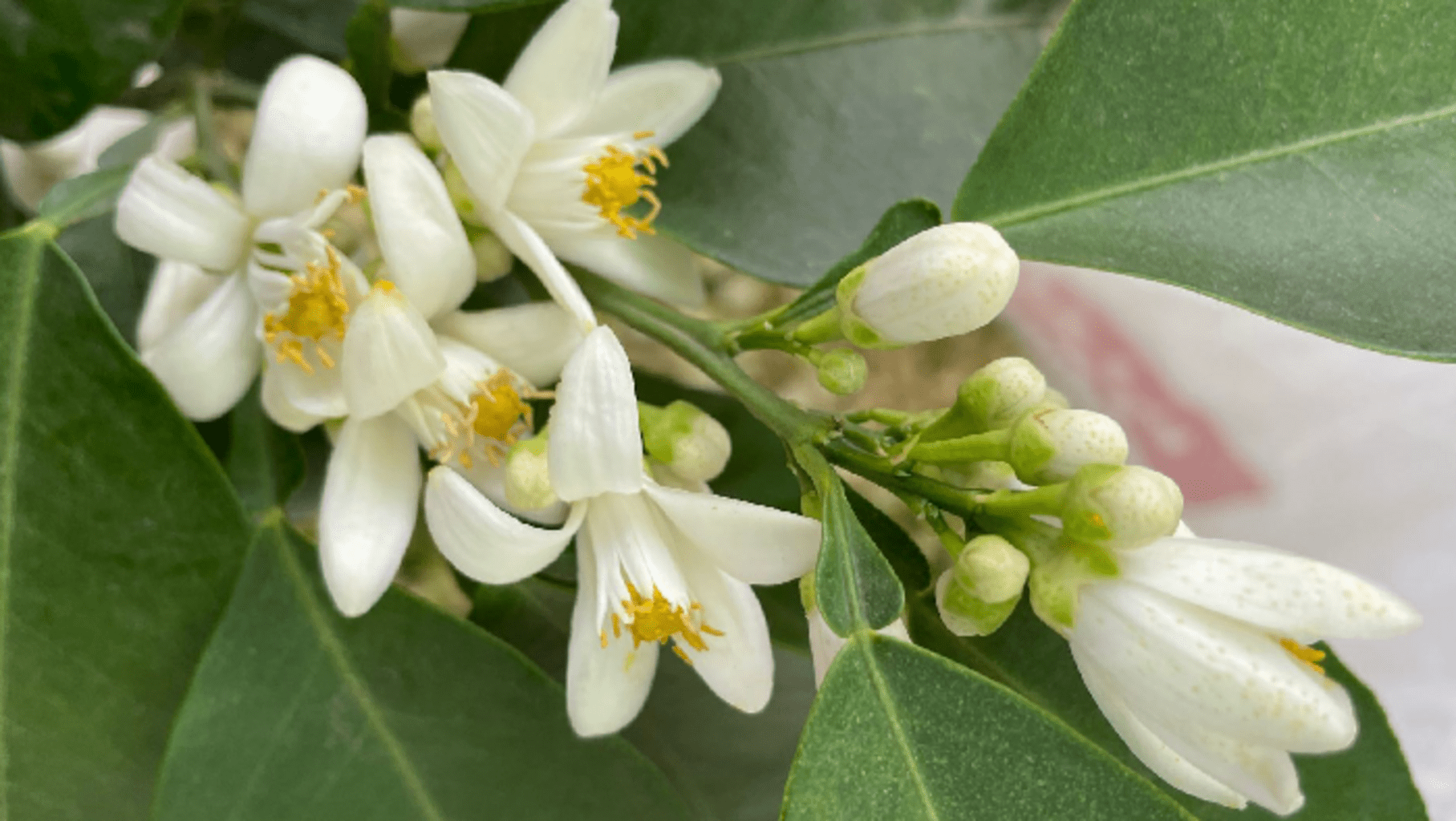Orange blossom water

Ingredients: Orange blossom water from organic farming 100% all natural, no additives, no preservatives, no alcohol.
For desserts and biscuits.
€12.80
10 cl
Recommendations
Orange blossom water adds a fragrant touch to biscuits, brioches, madeleines, as well as dairy desserts (custard, cream), and fruit salads. It pairs wonderfully with pistachios and almonds.
Savory dishes are not left behind. Orange blossom water complements a carrot salad and meat or vegetable tajines very well.
To flavor a beverage:
A few drops of orange blossom water in a cup of hot water make a lebanese white coffee, and they refresh a carafe of water.
Savory dishes are not left behind. Orange blossom water complements a carrot salad and meat or vegetable tajines very well.
To flavor a beverage:
A few drops of orange blossom water in a cup of hot water make a lebanese white coffee, and they refresh a carafe of water.
-
Allergens
Absent, except for cross-contamination.
May contain traces of sesame, celery, mustard, soy. - Origin Morocco
- Storage / Use In a cool, dark, dry place.
€128 / kg
The words of Mathilde Rœllinger
The bitter orange trees, from which this orange blossom water is derived, are cultivated organically in a preserved estate ine the south of Marrakech. In March, the bitter orange blossoms are delicately handpicked, and the petals are immediately distilled. This distillation yields, on one hand, a rare essential oil called neroli, and on the other hand, a floral water (hydrosol): orange blossom water.
Story
Orange blossom water, or bitter orange flower water, is obtained through the distillation of the bitter orange tree's blossoms. The bitter orange tree is native to China and northern India. The fruit of the bitter orange tree is the bitter orange, which is a half-sibling of the common orange. The bitter orange tree is a hardy and thorny tree, and its flowers and fruits are powerfully fragrant. Thanks to Arab merchants, the bitter orange tree spread throughout the Mediterranean basin. During the Renaissance, in Italy and France, nobles adored the fruit of the bitter orange tree, which was then identified as the golden apple from the mythological Garden of the Hesperides, to the point of building orangeries to preserve the precious trees. Louis XIV appreciated the scent of the flowers so much that he demanded the presence of bitter orange trees in the corridors of the Château of Versailles.
Bitter orange blossoms are associated with virtue and purity. They adorn bridal bouquets. The English have retained a taste for this bitter fruit, which can be found in marmalade. Many desserts in Mediterranean cuisine feature orange blossom water as an ingredient. In Marseilles, it is used to flavour the famous navette biscuits.
